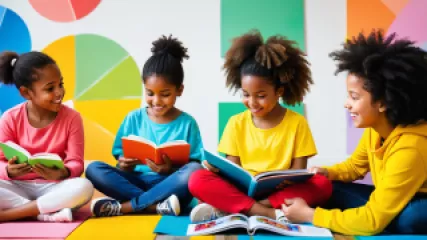Top 10 Children's Mental Health Resources for Building Resilience
Childhood resilience is a crucial aspect of mental health that helps children navigate through life's challenges and setbacks. Building resilience in kids equips them with the necessary skills to bounce back from adversity and develop a positive mindset. While parents play a significant role in fostering resilience, there are various resources available to support children's mental health and promote their emotional well-being.
1. Online Therapy for Kids
Online therapy platforms cater specifically to children's mental health needs, offering virtual counseling sessions with licensed therapists. These platforms provide a safe and accessible space for children to explore their emotions, learn coping strategies, and build resilience. Some popular online therapy platforms for kids include BetterHelp for Kids, Talkspace for Teens, and Pride Counseling.
2. Childhood Resilience Programs
Childhood resilience programs are designed to enhance children's emotional well-being and equip them with the necessary tools to navigate life's challenges. These programs often incorporate activities, workshops, and group discussions to promote resilience-building skills such as problem-solving, emotional regulation, and positive thinking. Examples of renowned childhood resilience programs include Kids Have Stress Too!, FRIENDS for Life, and Resilient Kids.
3. Virtual Therapy for Kids
Virtual therapy has become increasingly popular in recent years, providing children with access to professional mental health support from the comfort of their homes. Virtual therapy for kids offers individualized treatment plans, evidence-based interventions, and online resources to promote resilience and overall well-being. Leading virtual therapy platforms for kids include TeenCounseling, Amwell, and Talkspace for Kids.
4. Mental Health Apps for Kids
Mental health apps designed for children can be valuable resources in building resilience. These apps often include interactive games, guided meditations, and coping exercises that help children develop emotional intelligence and manage stress. Popular mental health apps for kids include MindShift, Smiling Mind, and Breathe, Think, Do with Sesame.
5. Supportive Online Communities
Online communities focused on children's mental health provide a space for children and their families to connect, share experiences, and find support. These communities often feature forums, chat groups, and educational resources that promote resilience-building strategies. Notable supportive online communities include Child Mind Institute, Anxiety and Depression Association of America, and Autism Speaks.
6. Children's Books on Resilience
Children's books can be powerful tools in teaching resilience and promoting emotional well-being. Books that explore themes of resilience, overcoming challenges, and developing coping skills can resonate with children and help them navigate difficult situations. Some noteworthy children's books on resilience include "The Dot" by Peter H. Reynolds, "The Most Magnificent Thing" by Ashley Spires, and "Ish" by Peter H. Reynolds.
7. Mindfulness and Meditation Resources
Mindfulness and meditation practices have been shown to enhance resilience and improve mental well-being. Online resources dedicated to mindfulness and meditation for children offer guided exercises, breathing techniques, and relaxation strategies to help children build resilience and manage stress. Notable mindfulness and meditation resources include Headspace for Kids, Calm Kids, and Stop, Breathe & Think Kids.
8. Educational Websites on Mental Health
Educational websites focused on children's mental health provide valuable information for parents, caregivers, and children themselves. These websites often feature articles, videos, and interactive content that promote resilience-building skills, raise awareness about mental health, and address common challenges faced by children. Noteworthy educational websites on mental health include KidsHealth, MindShift, and Child Mind Institute.
9. Resilience-Building Workshops and Webinars
Resilience-building workshops and webinars offer valuable insights and practical strategies to help children develop resilience. These events may be hosted by mental health professionals, educators, or organizations specializing in children's well-being. Participating in these workshops and webinars can provide children and their families with tools to foster resilience and thrive. Look out for workshops and webinars offered by organizations like The Resilience Project, Childhood Trauma Recovery Program, and Center on the Developing Child at Harvard University.
10. Parenting Resources on Resilience
Building resilience in children is a collaborative effort that involves parents, caregivers, and the broader support network. Parenting resources dedicated to resilience provide guidance, tips, and evidence-based strategies for fostering resilience in children. These resources offer valuable insights into understanding children's emotions, promoting healthy coping skills, and creating a nurturing environment. Notable parenting resources on building resilience include Zero to Three, Raising Children Network, and American Academy of Pediatrics.
By leveraging these top children's mental health resources for building resilience, parents, caregivers, and children themselves can develop the skills necessary to navigate life's challenges, cultivate a positive mindset, and promote overall well-being. Remember, resilience is not about avoiding difficulties, but rather about equipping children with the tools to thrive in the face of adversity.






